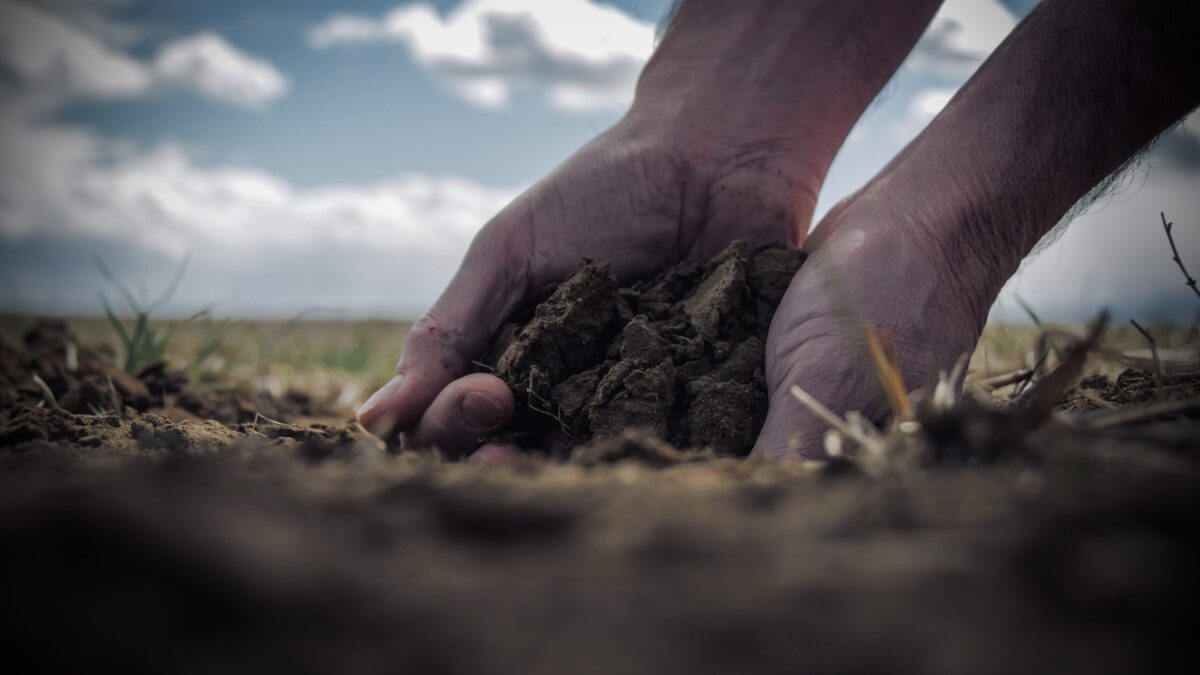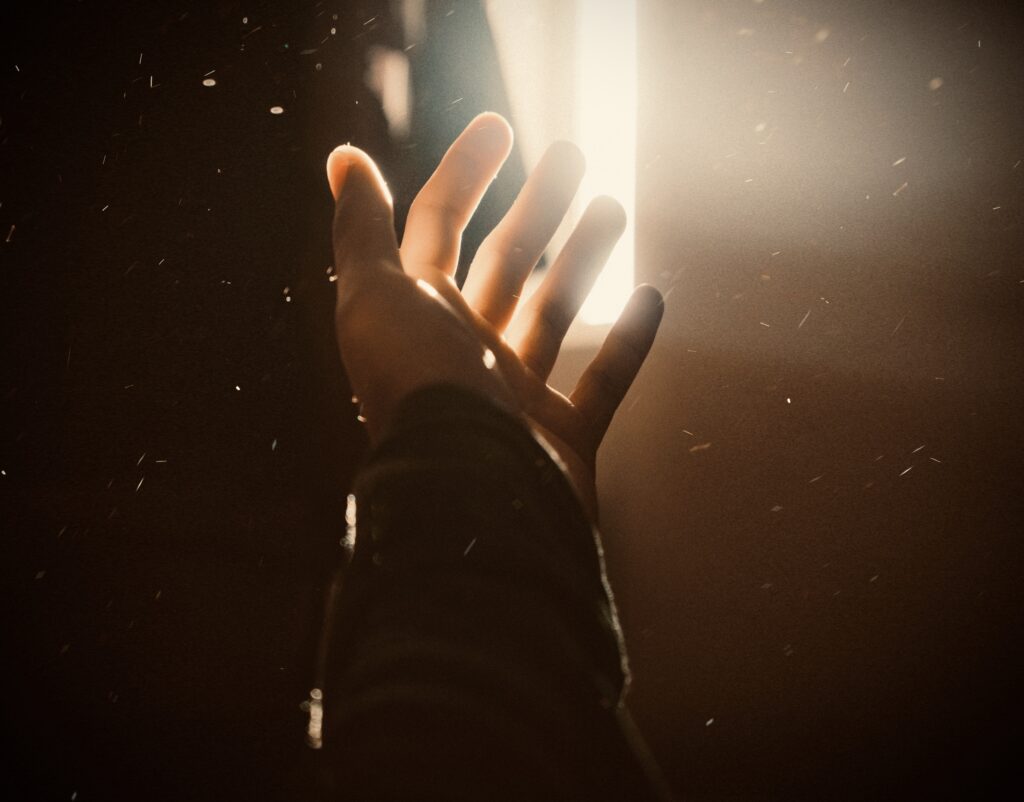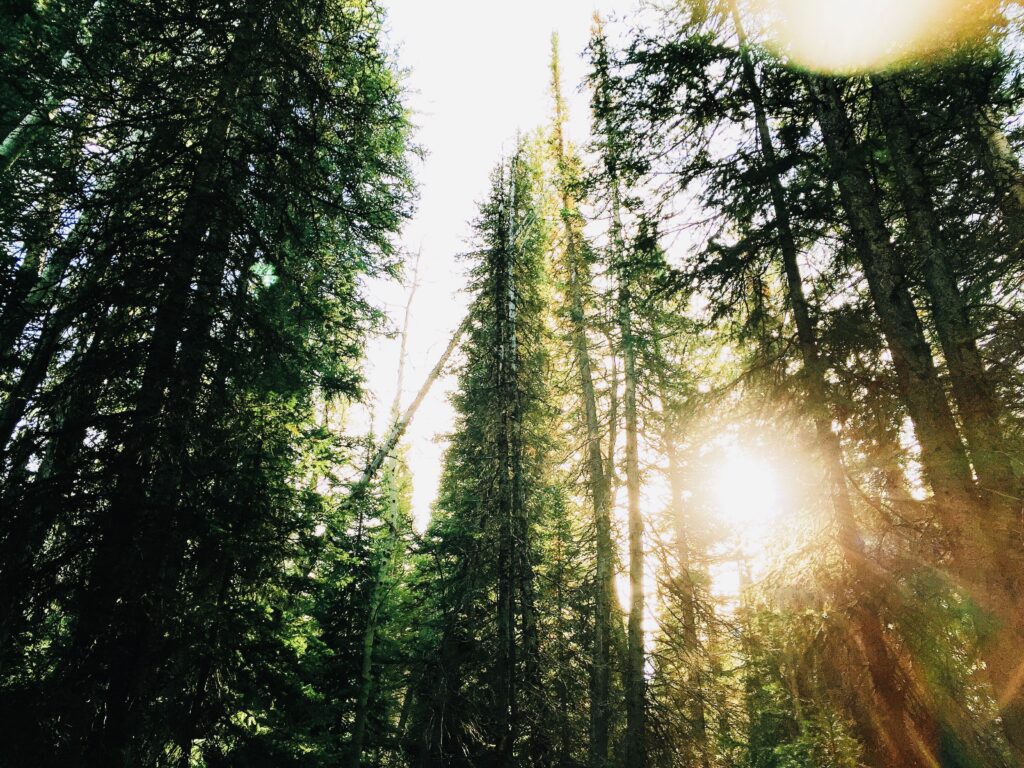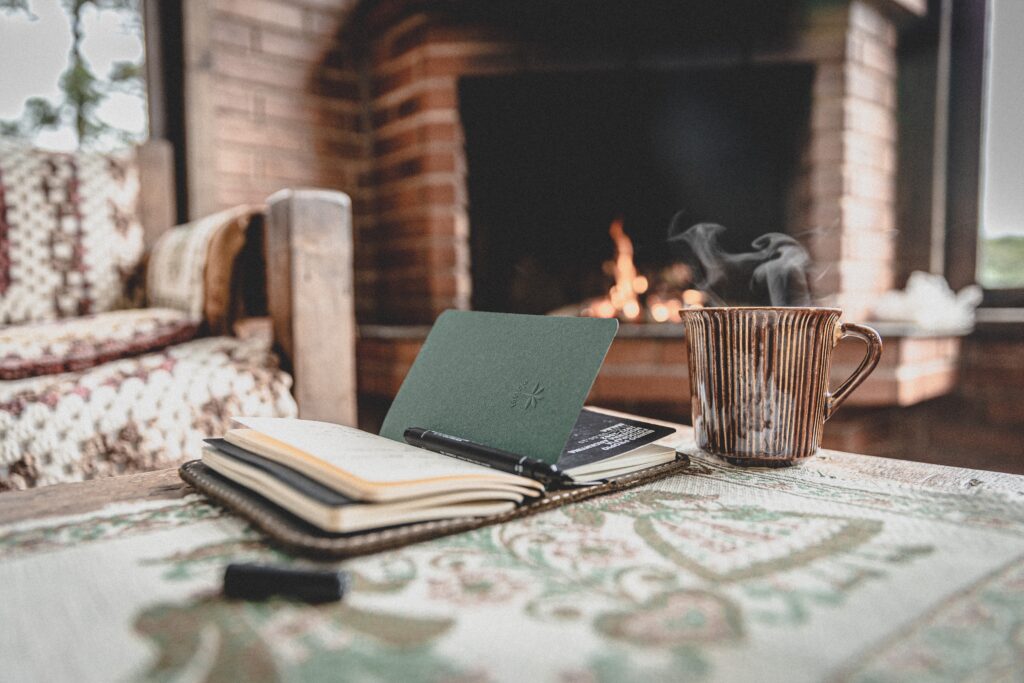The winter sun was just rising over the hospital buildings of downtown Duluth. Elyas and I were shivering in the car, on our way from the children’s oncology labs up to one of his weekly therapy appointments a few miles away. At the first stoplight I noticed a heap of blankets and a cardboard sign on the corner, so I pulled over into the abandoned parking lot behind it. Elyas asked why we were stopping.
“See on the corner there?” I asked, quickly pawing through the diaper bag. “There is a person who needs some help. We’re going to help.”
He nodded. This wasn’t new to him. He’s used to seeing me roll down the window and hand out what we have. Unopened bottles of water or untouched granola bars from the diaper bag. Sometimes cash if I have some on hand. He sees me laughing and chatting with these strangers with signs, asking their names and if I can pray for them.
I got out of the car and felt the cold wind gusting off Lake Superior. I walked to the pile of blankets and squatted down next to it. A wrinkled and forlorn face turned my direction, not meeting my eyes. My heart sank as I smiled and asked her name. She mumbled her reply, and a shaking hand emerged as I handed her all I could find: five one-dollar bills and two granola bars.
I prayed over her and walked back to the car.
“Did you give her some bars and money, Mama?” Elyas asked as I buckled myself back in.
“I did, buddy.”
“But you said we don’t have any money.”
I started the car and laughed to myself. It’s true; I did say that just a few days earlier. Because how do you explain to a four-year-old—who’s stuck on getting a new toy—the difference between operating financially out of the black or the red…and that it’s been a long stretch of red months?
“You’re right, Elyas. We don’t have any extra right now. That’s why we can’t buy toys. But we always have enough to help others. Even if it’s not much.”
There was silence from the back seat.
“We give to others because God gave us everything we have. He gave it to us to look after and enjoy and give away to others.”
“Oh, okay Mama. That’s good. You did a good job.”
I smiled into the rearview mirror. “Thanks, buddy.”
But inwardly, I sighed. Because it didn’t feel like a good job. It felt insignificant and hopelessly meager in the face of overwhelming need.
*
There is a story in Genesis 26 that has been rolling around in my head and heart the last few weeks. As a famine sweeps through the land, Isaac decides to head to Egypt. But the Lord tells him in a dream to go to a different land, and if he goes, the Lord will bless him.
So Isaac obeys and settles in the land of Gerar. And in the middle of this famine and drought, he sows seeds. And he reaps one hundred times what he planted that year.
One hundred times.
In a famine.
*
On a different day, heading home from Henry’s occupational and speech therapy, a man who looked to be in his 70s, wearing a ragged and dirty jacket, was shivering with a cardboard sign next to the stoplight I was waiting at. I hurriedly looked through my wallet and diaper bag. All I had was a granola bar and some cash I’d received as a gift for my birthday. I looked at the cash…and tucked it back inside my wallet. I was saving it so Brian and I could have take-out one night from our favorite Asian restaurant—a long-anticipated luxury for us this year.
But I felt something deep in my heart nudging me to give it away.
Not this, Lord, I thought angrily. I deserve this one, small thing. Right?
I stared at my wallet. I knew I was at a tipping point in my heart. And it wasn’t about money; it was about what kingdom I would choose to live out of—what kind of seeds I would choose to sow. I was in a warm car headed to a warm house with a warm bed. I had clean clothes and enough food in the pantry to feed our family for a few weeks. Would I defiantly clench my fists, choosing anger and fear and scarcity and selfishness? Or would I humbly open my hands to choose Joy and Hope and Trust and Abundance?
As I rolled down my window, I confessed my selfishness born from fear of lack. I thanked the Lord for all He’s given us and pulled the money back out. I could feel something shifting in my soul as I smiled and handed the cash and the granola bar to the man.
He gasped as he reached to take what was in my hand. With tears running down his dirt-stained face, he thanked me. I asked his name and if I could pray for him. He cried and said yes and told me his story. I spent the next few minutes talking with this heartbroken man, and I cried.
When the light changed, I drove away, waving my arm out the window as he yelled, voice cracking emotion, “Please keep praying for me!”
I put my wallet back in my bag, tears still in my eyes. Moments before it felt like too much to give. But now, on the other side of this man’s heartache and hopelessness, it felt like too little.
*
In many ways, 2020 was a famine year. Globally, nationally, and even personally. Some felt it more than others, but no one has escaped its greedy grasp. Many of us spent the better part of it starved for connection and hope. Meaning and purpose. Provision and abundance. Justice and mercy. Trust and unity. Truth.
It seemed the very earth we walked on dried up, crumbling under our feet, stirring up a dust so thick it was hard to see a way forward.
And as our lands went fallow, the enemy of souls was hard at work, planting seeds of his own. And they actually started to grow—these seeds that thrive in dead environments. Fear and panic. Dread and anxiety. Violence and distrust and anger and scarcity. Hatred and division.
And as the winds of change blew the dust around us into a storm that threatened to overtake us, many found themselves unanchored in the shifting sand. And so these dead things became the only handholds of reality. These seeds grew and grew until they became the makeshift shelters so many people held onto when the whipping wind threatened to blow them away.
They can’t see that these castles in the sand will wash away when the healing rain comes.
*
In a rural country field, more than 10,000 people had gathered to hear a man speak. He taught in riddles and stories and spoke things that seemed radical and counter-cultural. He healed the sick and the lame and the blind. He blessed the little children and challenged the religious leaders.
And in this rural country place, the man spoke long enough for people to get physically hungry. Many had traveled a long ways and had no more food to eat. But here, far from the bustling cities, there were not enough resources to feed a crowd of this size. Worry, restlessness, anxiety, and even fear settled over the people.
But in this crowd was a small boy. And in his hands was a basket that he humbly gave the man. In the basket were five small loaves of bread and two fish.
In the face of overwhelming need, it was beyond meager and inadequate.
But in the hands of the man, it was abundance beyond what anyone knew.
And as He blessed and broke that bread 2,000 years ago, He was planting the seeds of a new kingdom. A Kingdom with roots so deep that no drought can kill it. With fruit so abundant no weeds can overtake it. With such Life coursing through it that no storm can shake it.
*
Like many people, the pandemic has hit our savings and bank account. Hard. We haven’t told anyone outside of a few trusted family and friends of our financial situation, and those we only told to ask for prayer. It’s hard and uncomfortable to write about.
But.
There is more to the story. Because our God is a God of fishes and loaves. Of dollars and granola bars.
Over the last few months we have received random checks and deposits and gift cards from people—people who knew nothing of our situation—all saying something to the effect of We just felt the Lord nudging us to send this to you.
He even opened the door for me to take on a few freelance projects again.
So far, what we have received is more than one hundred times what I handed to that woman and that man out my car window.
One hundred times.
In a famine.
And I cry just thinking about it. Because we don’t deserve it. We’ve done nothing to earn it. It is Grace through and through.
*
“Those who walk the fields to sow, casting their seed in tears,
will one day tread those same long rows, amazed by what’s appeared.
Those who weep as they walk
and plant with sighs
Will return singing with joy,
when they bring home the harvest.” —Psalm 126:5 – 6
The entire idea of planting and sowing, reaping and harvesting speaks of intention and wisdom. You don’t just scatter seeds everywhere, walk away, and hope for the best. You don’t drain your bank accounts and live foolishly. You cultivate the soil and plant the seeds in ideal locations and you water and tend to them. You ruthlessly pull out the weeds so life can grow.
And it is never guaranteed. It is not an overnight thing. But we serve and obey a God that can bring provision from famine.
The question we have to ask ourselves is what are we planting? Because we WILL reap something. And we can choose to sow Hope and Joy and Peace and Abundance. Or we can choose to sow anger and bitterness and scarcity.
This is about so much more than money. This is about stewarding all He’s given us. When we realize that Abundance is a mindset, when we realize that everything we have has been given to us—that all is Grace—we begin to see that all we possess are actually seeds. Seeds of Hope that can withstand the longest drought. That bear fruit beyond this life.
And so we lean on His understanding and guidance. In all our ways we acknowledge Him and allow Him to direct our paths—even and especially when it doesn’t make sense. We seek His Kingdom first, and we ask for wisdom on how we plant and cultivate and use the seeds of our time and possessions. How we use our place of living. How we use the words we say (or don’t say) and how we use our gifts and talents. Sometimes we give away a meal or an encouraging card or the almost-new office chair we never use anymore or the bottle of water from the diaper bag.
And when we humbly and willingly lay it all on the altar—planting in a famine what feels like our last seeds of faith—we don’t have to worry about tomorrow. Because in this deeply-rooted Kingdom, what He reaps from what we sow is nothing short of miraculous. And when we walk those long rows again, we will be amazed by what’s appeared.
Because this is a Kingdom where five loaves and two fish—where five dollars and two granola bars—are the seeds of Hope and Joy and Abundance this drought-starved land needs.
***



